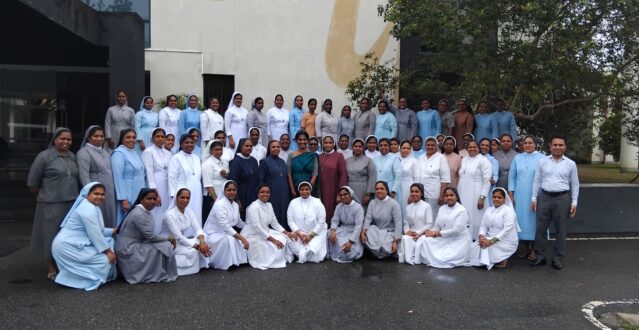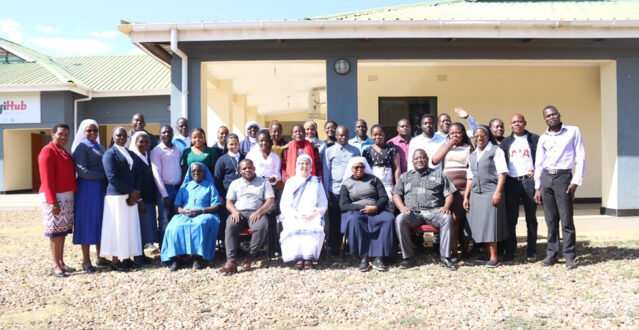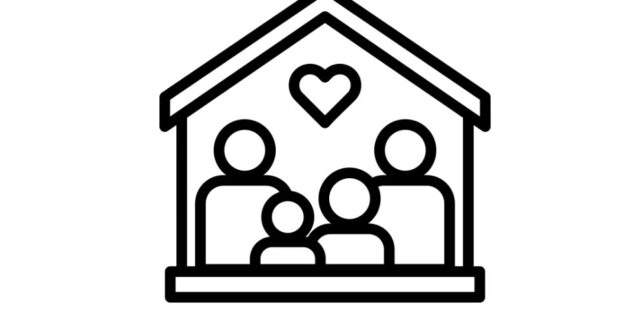As we negotiate multiple crises—the Covid pandemic, environmental catastrophes, wars and conflicts, individual and institutional abuses—we often fail to notice small initiatives, the mustard seeds of change that are already growing among us. These signs of newness often begin in unexpected and demanding places. Catholic Care for Children is one such seed of change that is making enormous contributions as it develops and expands within and across continents. From small beginnings in Africa, Catholic Sisters are making a significant impact within the care reform sector in ways that are helping to ensure that children have every opportunity to grow up in safe, nurturing families or family-like environments.
Animated by the Gospel, Catholic Sisters for centuries have cared for children and vulnerable adults. For a multiplicity of reasons, often the absence of family support and/or resources, children and other vulnerable persons have been placed in institutions by family members and by government and church officials. This practice started at a time when the ministries of Catholic Sisters were largely confined to institutions. At that time, Sisters lived a monastic life with little contact with life outside the convent. These institutions were attached to convents where living was frugal and resources were often minimal. The Sisters were left to cope as best they could without the support of social welfare systems and government policies. Few had the education and training needed to deal with the young people who were resident in their institutions. In some cases, these approaches left much to be desired, as they mirrored 5 the mores of the day, when it was thought that children had no rights and when discipline was often enforced in a demanding way. We know to our shame the different kinds of abuses that children suffered in some institutions. And while we must also acknowledge the warmth and loving care provided by so many Sisters and lay personnel who have ministered in institutional settings, we have come to understand that a child needs the nurture of a family that cannot be found in an institution, no matter how good the institution may be.
Today, many Sisters see clearly the flaws within systems that favor institutional approaches to care. No matter how much love and support a child receives in an institution, it is no substitute for a family or family-like support system. Pope Francis continually speaks about the dignity of the human person and the dignity of each child. He speaks about the need to promote a culture of care that prioritizes human dignity at every level of society. He reminds us that “it is important to promote ’a culture of faces,’” which places the dignity of the person at the center, a respect for his or her story, especially for those who are wounded and marginalized. How true this is for many children and their families. As the Pope reminds us, “No family drops down from heaven perfectly formed….”1 Families need encouragement and support to sustain love and nurture.
These words of Pope Francis point to the work of Catholic Care for Children, a Sister-led movement to ensure a family for every child. Begun in Zambia, Uganda, and Kenya and now promoted by the International Union of Superiors General (UISG) at the international level, Catholic Care for Children International (CCCI) sees the importance of first educating the members of religious congregations and then the general public to read the signs of the times about the necessity for care reform. The second step to be taken involves a movement from an institutional approach to family- and community-based approaches to care for children and other vulnerable persons. These present Sisters worldwide with opportunities to reflect on their practice within the care sector, especially for institutes operating care homes.
As CCCI reaches out to other Sisters and their colleagues in countries in Africa, Asia, and Latin America, it does so animated by the Gospel imperative to care for the vulnerable and by the principles of Catholic social teaching emphasizing human dignity; informed by the social sciences about what makes for healthy children and families; and cognizant of new and emerging legal frameworks favoring family care for children. CCCI is inspired by the courageous leadership and best practices of Sisters and their colleagues in Africa.
Placing children and their families at the center of our care means that pastoral initiatives must focus on strengthening and protecting the family so that no family is forced to place a child in an institution because of poverty. It ensures that, in situations of grave or immediate need, a child is placed in an institutional setting for the shortest possible time. This is the work of domestic and societal peacebuilding—the shalom of ensuring fullness of life for each person and for all. This Hebrew word, meaning uninjured and safe, whole and sound,2 carries the vision that we in the CCCI movement desire for each child in our care and protection. May we each take the steps necessary to strengthen and build the supports needed by families and extended families so that they too can provide the nurturing environment essential to each child in their midst.
1 Francis, Post-Synodal Apostolic Exhortation Amoris Laetitia [The Joy of Love], March 19, 2016, no. 315, Holy See, https://www.vatican.va/content/francesco/en/apost_exhortations/documents/papa-francesco_esortazioneap_20160319_amoris-laetitia.html.
2 “The Meaning of Shalom in the Bible,” New International Version, https://www.thenivbible.com/blog/meaningshalom-bible.
This article is the Foreward to the publication “A Family for Every Child.” Read the full publication here.








